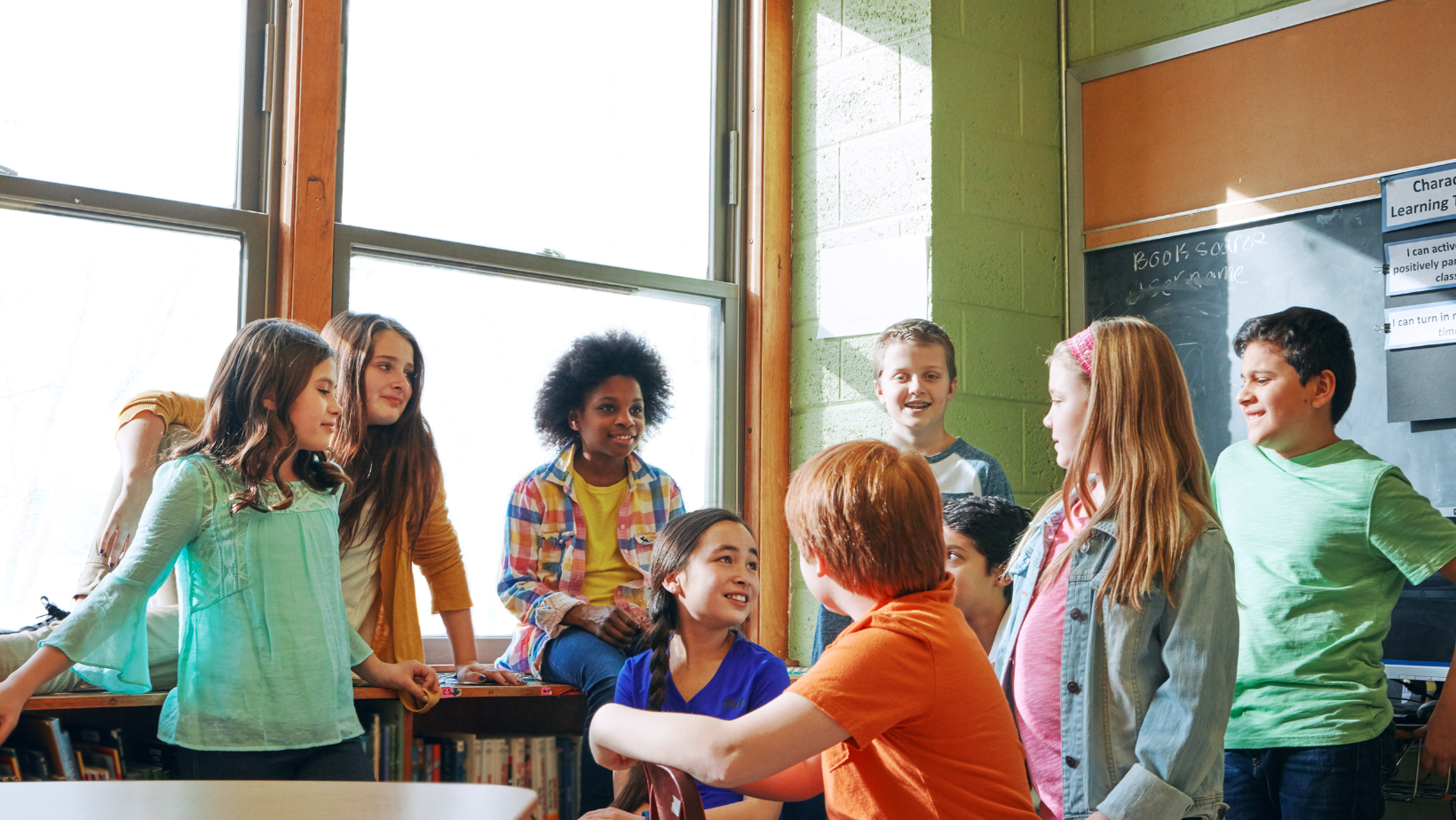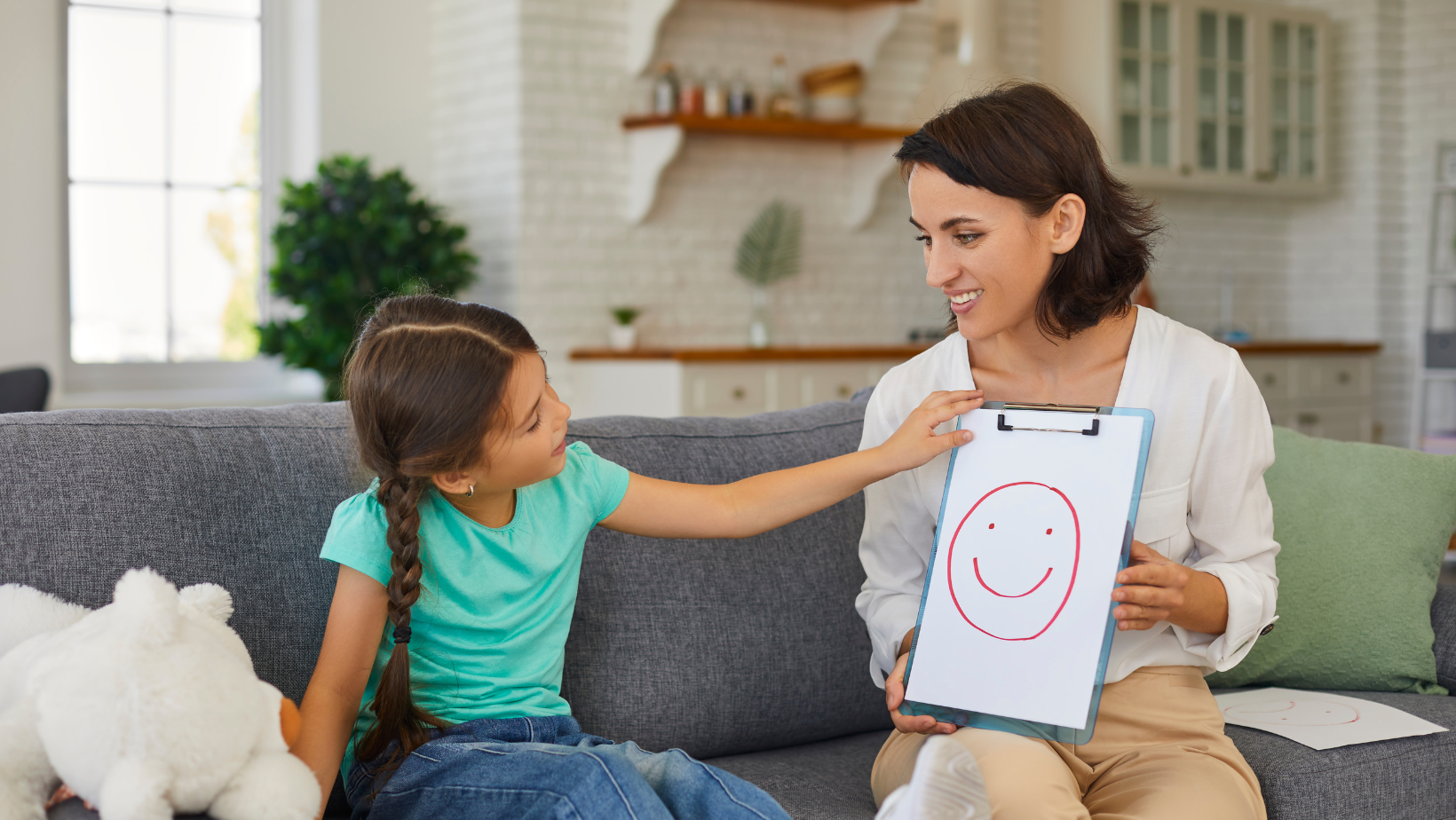
In recent years, there has been an increased focus on the importance of social-emotional learning. Not a surprise, since the development of social-emotional skills is an essential component of education and is becoming increasingly critical in other areas of life, such as work and other social situations.
In the classroom, social-emotional learning (SEL) not only has a significant impact on a child's academic performance, but it plays a crucial role in their social behavior and emotional self-regulation—which, in turn, paves the way towards their success later in life.
We discussed the relevancy of SEL in math in a past blog and how applying SEL practices can have a positive impact on effective problem-solving. Additionally, we looked at how developing interpersonal skills can make a difference in collaborative classroom environments, and how teachers can support SEL in the classroom. Teachers play a critical role in teaching children how to succeed in school, but not all teachers have the training or experience needed to teach it effectively.
Let’s take a closer look at SEL practices that will ensure students succeed in math and academia as a whole. First, let’s examine exactly what SEL is, the science behind it, and some of the overall benefits of applying SEL strategies in the classroom.

Social-emotional learning (SEL) is the process of developing skills that enable individuals to recognize and manage their emotions, make responsible decisions, and build positive relationships. It's a type of emotional intelligence that allows students to understand their own emotions and those of others.
The rise of SEL began in the 1960s with a vision to improve the “whole child” and with the sole purpose of improving the quality of education for low-income children. One of the main discoveries during this period involved a link between social and emotional growth and positive academic outcomes.
According to We Are Teachers, SEL “...teaches kids to manage their emotions, communicate with others, make smart choices, and more.” While children can naturally adopt SEL skills as they get older, being taught SEL skills directly can increase the odds that they’ll develop said qualities.
Self-regulation is also crucial to the healthy development of SEL and improved academic performance. It’s the student’s ability to control their thoughts, feelings, and actions. Self-regulation can help students manage their stress, solve problems, make decisions that benefit themselves and others, and achieve their goals. Students with good self-regulation skills are able to manage their emotions and behavior, get things done on time, and be more successful in school.
Social-emotional skills are vital for success in the classroom. Most research shows that students who have strong social-emotional skills are more likely to succeed academically, have fewer disciplinary problems, and exhibit higher levels of motivation.
A recent study demonstrated that students who were actively involved in SEL programs performed better in school, socially, and academically. Their academic achievement encompassed not only higher levels of attendance but also increased and improved engagement in their learning. Student SEL skills, especially when it came to their attitudes and behaviors, also improved, boosting their self-esteem and self-efficacy. Overall, students felt more confident and connected to their peers and teachers, decreasing their anxiety and stress levels.
Other research further indicates the robust link between SEL and academic achievement. SEL skills are positively correlated with reading and math performance. In other words, if they have strong SEL skills, their education will benefit as well; and if their SEL skills are weak, academic performance tends to suffer. Most students who are identified as requiring social-emotional support also required a similar level of academic support. By ensuring students strengthen their SEL skills in a safe environment, we can, in turn, boost their academic achievement.
The same study above underscores the importance of educators considering a more integrated approach to support students and assess their strengths from a holistic standpoint. To achieve this, all stakeholders—including students, parents, and teachers—should collaborate to ensure both academic and SEL needs are met.

Students with strong social-emotional skills are better able to manage their emotions and behaviors, which helps them succeed in the classroom. For example, they can remain calm when faced with an unexpected challenge or frustration. This can enable them to solve problems more effectively without distractions. Students who have these skills are not only more likely to succeed academically but do much better in social situations as well.
Social-emotional learning can also be taught explicitly through classroom lessons and activities as well as through class norms and expectations. It’s important to note that SEL is a process that takes place over time, where students learn important skills like empathy, self-control, problem-solving, and cooperation. It's not just about the student; it's about the student in relation to others.

There is much more to SEL than how it connects to student academic success. It's also about helping children develop positive relationships with others and become more confident, socially competent, and emotionally intelligent. Additionally, children who experience SEL at home are more likely to engage in learning, have a positive attitude toward school, and be able to form and maintain friendships with peers.
For example, a child who experiences feelings of competence will likely feel better able to learn from their mistakes rather than beating themselves up about them, which can lead to improved performance overall, not just academic.
A recent EducationWeek article points to the important role that parents can play in improving their child’s SEL skills. In fact, the main step “teachers think their school or district should take to help improve students’ mental well-being is to help parents support their kids at home….” When parents make their children feel valued, they are more likely to make good choices and take responsibility for their actions.
By learning how to manage their emotions, students will be better able to focus on their education. This is because a student who understands how their emotions affect their thoughts and actions will be able to focus on what they're doing. When children learn how to manage their emotions, they’re also better able to deal with stress in their lives, which makes them more resilient when facing difficult situations.
Students who have strong emotional intelligence tend to do better in school not only because they are more focused, but are less likely to get frustrated when things don't go as they had planned. The ability to regulate and manage emotions can also help children stay calm and focused during stressful situations, which helps them perform better in school.
And when children are taught SEL skills, such as sharing and taking turns or how to resolve conflict, this helps them develop other skills that benefit all areas of their lives.

Social-emotional learning is an essential part of a child's development. It can help them succeed in school and form positive relationships with others, but not all children are exposed to this type of learning in or outside of school. Implementing SEL strategies requires a change in teaching practices, as well as how students learn SEL skills outside of the classroom. The challenge is effectively integrating SEL in all facets of a student’s life. But there is no question that if students are well-equipped with SEL practices, they’ll thrive in many aspects of their lives, not just academics.

Victor Nguyen is MIND’s Content and Community Specialist. Victor is a passionate storyteller with a penchant for creative writing. In his free time, you can find him engrossed in books, going on long hikes, or trying to meditate.
Comment